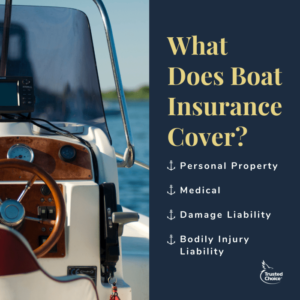
Vision insurance for college students is not just an optional add-on; it’s a critical component of their overall health care. As students face the rigors of academic life, they often overlook their eye health, which can lead to serious issues down the line. With the right vision insurance, students can access necessary eye exams, corrective lenses, and other essential services that promote better academic performance and well-being.
Understanding the specific vision challenges that college students encounter, such as prolonged screen time and late-night study sessions, highlights the importance of having tailored insurance options. This article will explore how vision insurance can significantly benefit young adults by addressing their unique needs while providing insights into selecting the best plans available.
Understanding Vision Insurance for College Students
Vision insurance is an essential consideration for college students, who often face unique challenges when it comes to eye health. As they juggle their academic responsibilities and personal lives, having reliable vision coverage ensures that they can maintain their sight while focusing on their studies. The importance of vision insurance cannot be understated, as it provides timely access to necessary eye care services, which can greatly impact overall well-being and academic performance.Many college students experience vision problems due to prolonged screen time, stress, and irregular sleep patterns.
Common issues include eye strain, dry eyes, and nearsightedness, often exacerbated by late-night studying and digital distractions. Vision insurance comes into play by offering coverage for eye exams, corrective lenses, and treatments, allowing students to address these problems promptly. Having this coverage not only alleviates financial burdens but also promotes a proactive approach to eye health, ensuring that students can perform their best academically.
Key Features and Benefits of Vision Insurance for Young Adults
When considering vision insurance, it is vital to recognize the specific features and benefits that cater to young adults. These aspects not only enhance accessibility to essential eye care but also provide financial peace of mind. Here are some of the key offerings included in most vision insurance plans for college students:
- Routine Eye Examinations: Regular check-ups are covered, allowing students to detect and address any vision issues early on.
- Discounts on Eyewear: Many plans offer significant savings on glasses and contact lenses, which can be particularly beneficial for those who require frequent replacements.
- Access to a Network of Providers: Students can choose from a wide range of eye care professionals, ensuring they receive quality treatment from trusted providers.
- Coverage for Specialized Care: Some plans include benefits for specialized services, such as consultations for eye conditions or surgeries.
Incorporating vision insurance into a college student’s healthcare strategy can significantly enhance their ability to maintain optimal health.
A proactive approach to eye health can contribute positively to one’s academic performance and overall quality of life.
Understanding the features and advantages of vision insurance enables students to make informed decisions about their eye care. As they navigate their college journey, ensuring access to eye care will not only support their academic achievements but also foster a lifetime of healthy vision habits.
Comparing Vision Insurance with Other Types of Insurance
When considering various types of insurance, it’s essential to understand how vision insurance compares to other options like pet insurance, supplemental insurance, and travel insurance. Each type serves a unique purpose and caters to specific needs. By exploring these differences, students can make informed choices about their insurance options while in college.
Vision Insurance and Pet Insurance
Vision insurance primarily focuses on eye health, covering routine eye exams and prescription eyewear, while pet insurance is designed to cover veterinary expenses for pets, including accidents and illnesses. Here are some unique aspects of each:
- Coverage Focus: Vision insurance emphasizes eye care, including exams and lenses, whereas pet insurance covers a broader range of health issues for animals, from regular check-ups to emergency care.
- Cost Implications: Vision insurance typically has lower premiums compared to pet insurance, which can vary greatly based on the pet’s breed, age, and health history.
- Exclusions: Vision insurance often excludes certain conditions like cosmetic surgeries, while pet insurance may not cover pre-existing conditions or specific breed-related issues.
Differences Between Vision Insurance and Supplemental Insurance
Supplemental insurance provides additional coverage that enhances primary insurance plans. In contrast, vision insurance is a specialized form that focuses specifically on eye care. The differences in coverage limits and benefits are significant:
- Specificity of Coverage: Vision insurance is solely for eye-related expenses, while supplemental insurance can cover a wide range of services, including dental and critical illness.
- Coverage Limits: Vision insurance often has set limits on how much can be spent annually on eye exams and eyewear, while supplemental insurance may offer more flexible payout options depending on the policy chosen.
- Eligibility: Vision insurance is typically available to anyone who needs eye care, whereas supplemental insurance may have eligibility requirements based on existing health insurance plans.
Vision Insurance and Travel Insurance
Travel insurance is designed to protect travelers against unforeseen events while abroad, such as trip cancellations or medical emergencies. Vision insurance, however, is focused on regular eye care needs. The following highlights how these two types of insurance relate, especially for students studying abroad:
- Emergency Coverage: Travel insurance may cover medical expenses for eye-related emergencies while overseas, but it is not designed for routine care like vision insurance.
- Cost Considerations: Vision insurance costs are usually predictable with regular premiums, while travel insurance costs can fluctuate based on travel duration and destination.
- Policy Scope: Vision insurance typically provides benefits for vision correction and eye health, whereas travel insurance focuses on a wide array of travel-related issues beyond just health, like lost luggage or trip interruption.
Making Informed Choices About Vision Insurance

Choosing the right vision insurance plan is crucial for college students, who often face unique demands and financial constraints. With numerous options available, understanding how to evaluate and select a suitable plan can make a significant difference in accessing essential eye care services. This guide will help students navigate the process of selecting the ideal vision insurance tailored to their needs.When considering vision insurance, students should prioritize their specific requirements, such as frequency of eye exams, the need for prescription glasses or contact lenses, and overall budget.
It’s essential to compare different plans based on coverage options, costs, and provider networks.
Criteria for Selecting Vision Insurance Plans
Understanding the various features of vision insurance plans can assist students in making informed decisions. Important criteria to consider include:
- Coverage Level: Analyze what services are included, such as eye exams, lenses, frames, and discounts for additional services.
- Costs: Examine the premium, deductible, copayments, and out-of-pocket expenses to determine total potential costs for care.
- Network of Providers: Check if local optometrists or ophthalmologists are included in the plan’s network, which can affect the convenience and cost of care.
- Frequency of Benefits: Some plans offer annual allowances, while others might allow for more frequent visits. Understanding this can help in planning eye care needs.
Top Vision Insurance Providers for College Students
Several vision insurance providers cater specifically to college students, offering affordable plans with comprehensive coverage. Here’s a list of some of the most recommended options:
- VSP (Vision Service Plan): Known for extensive provider networks and a variety of plans that include both exams and eyewear.
- EyeMed: Offers flexible plans with options for both glasses and contacts, along with discounts on LASIK procedures.
- UnitedHealthcare Vision: Provides comprehensive coverage with a focus on preventive care and customizable plans.
- Humana Vision: Features affordable premiums and a wide range of in-network providers, making it a student favorite.
Filing Claims and Accessing Benefits
Understanding the claims process is crucial for maximizing the benefits of vision insurance. Typically, the steps to file a claim include:
- Verify Coverage: Before services are rendered, confirm the specifics of coverage with the provider to avoid unexpected costs.
- Obtain Documentation: Keep copies of receipts, invoices, and any other relevant documents after receiving eye care services.
- Submit Claim: Claims can usually be filed online or via mail. Include all necessary documentation and complete any required forms accurately.
- Monitor Status: After submission, track the claim status through the insurance provider’s website or customer service for updates.
“Understanding your vision insurance is key to ensuring you get the care you need without unexpected costs.”
Navigating vision insurance can be straightforward with the right information and careful consideration of personal needs. By following the Artikeld criteria and understanding the claims process, students can make informed choices that support their eye care needs during their college years.
Last Word

In conclusion, investing in vision insurance for college students is an essential step toward maintaining eye health and enhancing academic performance. By understanding the various options available, students can make informed decisions that suit their lifestyle and budget. Prioritizing eye care not only prepares students for their studies but also sets the foundation for a healthier future.
FAQ Resource
Why do college students need vision insurance?
College students often face unique vision challenges, and having insurance ensures they can get necessary exams and corrective lenses without financial strain.
Are there specific vision problems that college students commonly experience?
Yes, common issues include digital eye strain, nearsightedness, and allergies, which can be addressed through regular eye care.
How do I choose the right vision insurance plan as a student?
Consider factors like coverage options, costs, and provider networks to find a plan that meets your specific needs.
Can vision insurance cover contact lenses?
Many vision insurance plans do provide coverage for contact lenses, but it varies by provider, so always check the specifics.
What documentation do I need to file a claim?
Typically, you will need your insurance card, receipts for services, and any relevant forms from your provider.




